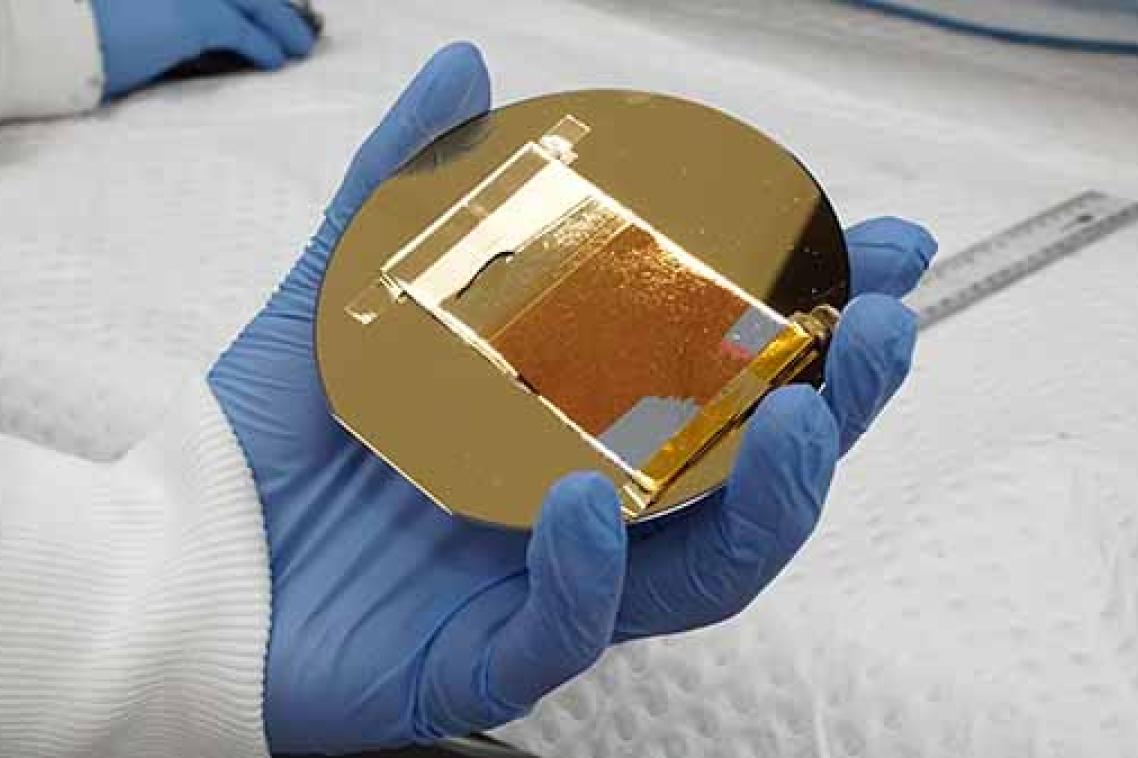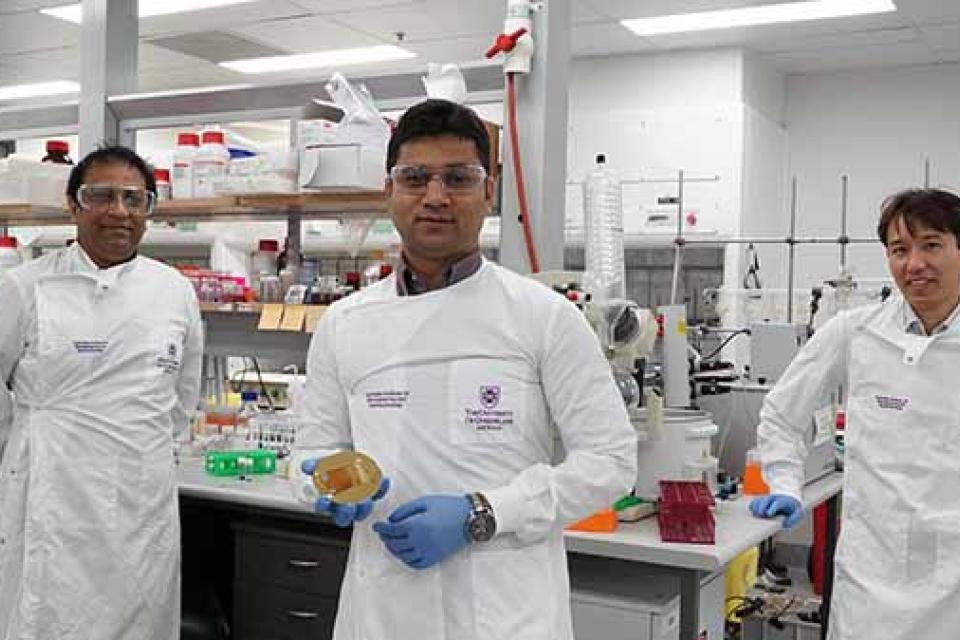Pots of gold engineered to help with early disease detection

University of Queensland researchers have developed biosensors that use nanoengineered porous gold which more effectively detect early signs of disease, improving patient outcomes.
Most diagnostic methods use costly materials and are time-consuming and expensive to run, but PhD candidate Mostafa Masud and research supervisors Professor Yusuke Yamauchi and Dr MD Shahriar Hossain have developed a cheaper, faster and ultrasensitive biosensor for point-of-care testing.
Mr Masud said the most exciting thing about the project was that it broke through some of the current limitations associated with early detection of diseases.
“This new diagnostic technique allows for direct detection of disease-specific miRNA, which wasn’t previously possible,” Mr Masud said.
“This is especially important for patients at an early stage of a disease such as cancer, who do not have detectable amounts of other biomarkers, but may have a detectable quantity of exosomal miRNA biomarker.
The platform was nanoengineered by the team to read samples of blood, urine, saliva or plasma through a surface covered in a gold film, which has millions of tiny pores.

The team is continuing to develop this platform, and plans for it to be available to medical practitioners in the next five years.
“Doctors will be able to use our platform to take a small fluid sample from a patient and test for diseases instantly, for around one quarter of the cost of other diagnostic techniques,” Professor Yamauchi said.
The researchers said the technology would be easy to use and particularly useful in remote locations and developing countries where rapid and early diagnostics were critical, especially in the case of viral infections.
This research was funded as an Australian Research Council Discovery Project and published in the journals, Biosensor and Bioelectronics and Chemical Society Reviews.
Image above left: Dr MD Shahriar Hossain, Mostafa Masud, Professor Yusuke Yamauchi
Media: UQ Communications, Genevieve Worrell, g.worrell@uq.edu.au, +61 408 432 213.
Related articles

Nature versus nurture question addressed in landmark study

Anyone can be a hacker with AI – so what does that mean for the cyber defence industry?
Media contact
UQ Communications
communications@uq.edu.au
+61 429 056 139
